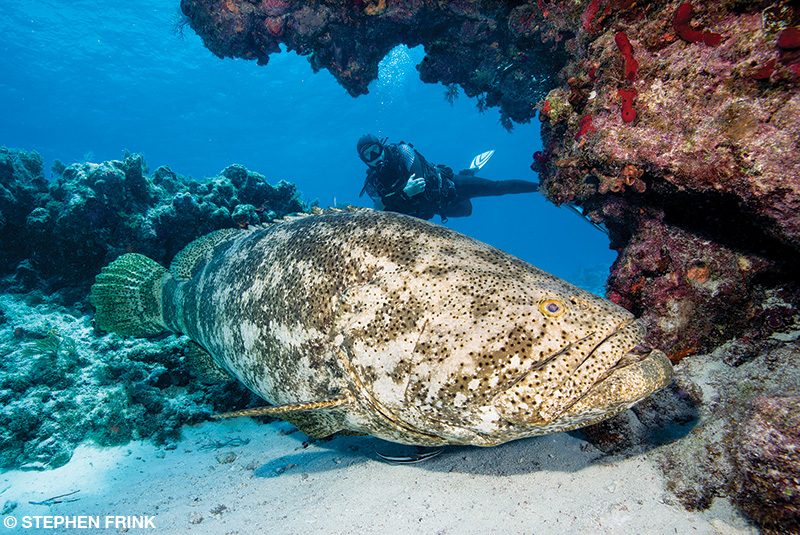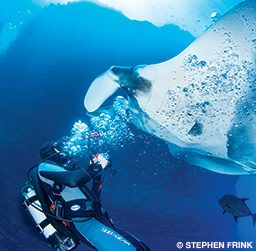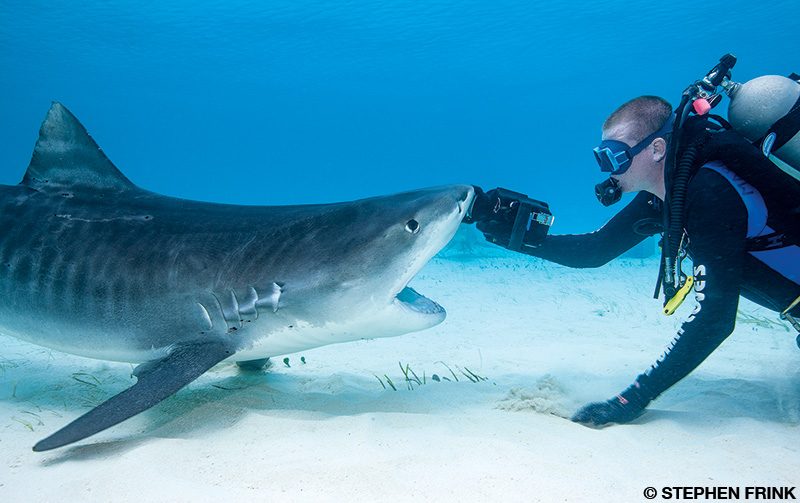As memes featuring divers in full scuba gear going grocery shopping or practicing social distancing underwater quickly appeared online in response to the COVID-19 pandemic, the real impact of the virus on society became increasingly serious. Humor aside, diving can offer a simple checklist for coping with the pandemic.
These following dive-related practices can help us stay safe in our new COVID-19 world.
Keep your mask on.
The most basic piece of dive equipment is a mask that covers the eyes and nose, allowing you to see clearly underwater. Divers learn how to remove and replace their mask while submerged and know to end a dive if the mask malfunctions. No mask, no diving.
The face masks we need to wear in public to combat the spread of COVID-19 protect us and other people. They shield our respiratory passages from droplets others have exhaled or expelled and protect those around us from the virus we may be unwittingly carrying.
While wearing face masks in public may seem like a needless nuisance to some people, they send an important message to everyone around us: “I care about you.” I wear a mask in public to both protect myself and demonstrate to essential workers and neighbors that I will inconvenience myself to protect and reassure them. I put on my mask before entering the water and now before going out in public.
Keep your distance.
The delicate coral reef of the Cabo Pulmo National Marine Park in Mexico is one of my favorite dive destinations. Before entering the water there, divers must learn the park rules that protect the marine ecosystem. Rule 39 prohibits anyone from getting closer to the reef than 8 feet (2.5 meters). At this distance it’s impossible to even accidentally interact with the fragile marine life on the reef. Good divers already practice good social distancing from marine life underwater.
If I’m in public wearing a face mask and keeping 6 to 8 feet from other people, then my likelihood of contracting or unknowingly spreading COVID-19 is greatly reduced. As a caring citizen, I practice good social distancing in public just as I do when diving.

Look but don’t touch.
While it is sometimes tempting to pick up things underwater, divers know better. The Conus textile cone snail, for example, has a beautiful shell that invites collection, but it is also highly venomous. Conversely, handling sea creatures can be harmful to the animals. It is usually best for divers to keep their hands to themselves. When I dive into wrecks or dig in the seafloor for prehistoric megalodon shark teeth, however, I wear gloves to protect me from things that could injure me.
I used to greet people with a handshake or hug, but I know that touching other people now can be harmful to me or them. When I need to touch high-use public objects such as gas pumps, I wear disposable latex gloves. Just as when diving, I try to keep my hands to myself and wear protection when touching is necessary.
Mind your breathing.

An important rule of scuba diving is to never stop breathing and to take regular, normal breaths. If there is a problem with your air supply underwater or you have trouble breathing, then your buddy helps you get to the surface.
Serious cases of COVID-19 can limit the ability to breathe normally and easily. The virus inflames lung tissue and can cause infection in the air sacs. If you feel sick and have trouble breathing, then immediately seek treatment. Breathing is a matter of life and death, whether underwater or on the surface.
Mindful breathing can help people cope with the stress of learning to live in a world compromised by COVID-19. When I feel overwhelmed, anxious or threatened, focusing on my breathing calms me. I learned this from diving too.
Face your fears.
To become a diver, I overcame a fear of breathing underwater and eventually of diving deeper than 100 feet and encountering sharks. Anxiety and fear are different things, however. Our vulnerability to the invisible COVID-19 adversary often fuels anxiety.

General anxiety has no object to confront, so it can be overwhelming. Try to name your specific fears and then ask yourself the following questions:
- Is this fear reasonable?
- Is what I fear likely to happen?
- Can I prevent it?
- If my worst fears happen, can I handle the consequences?
Millions of people have lost their jobs due to the pandemic, many fear losing their homes, and their fears of financial and food insecurity are real, immediate and pressing. Health-care workers face the direct threat of COVID-19 infection every day. People are confronting real fears, and they need our support.
We can’t don full scuba gear to go shopping or spend the next few months underwater to hide from the coronavirus. We can, however, practice a few basic principles of safe, skillful diving that have immediate application in our everyday lives during these times.
© Alert Diver — Q3/Q4 2020